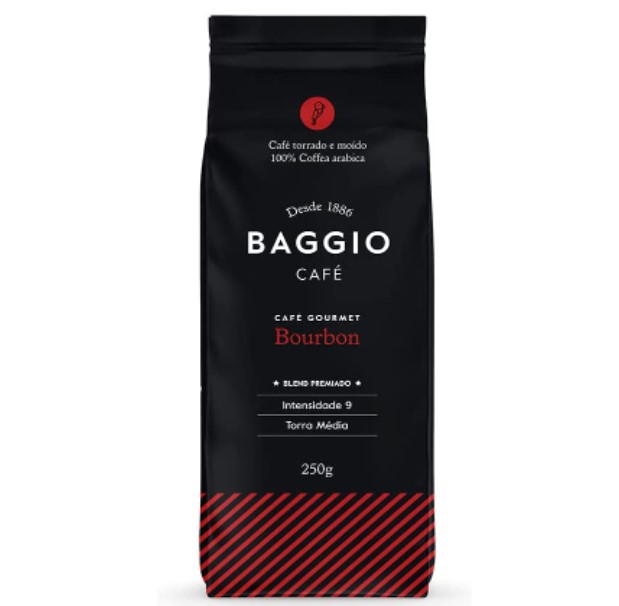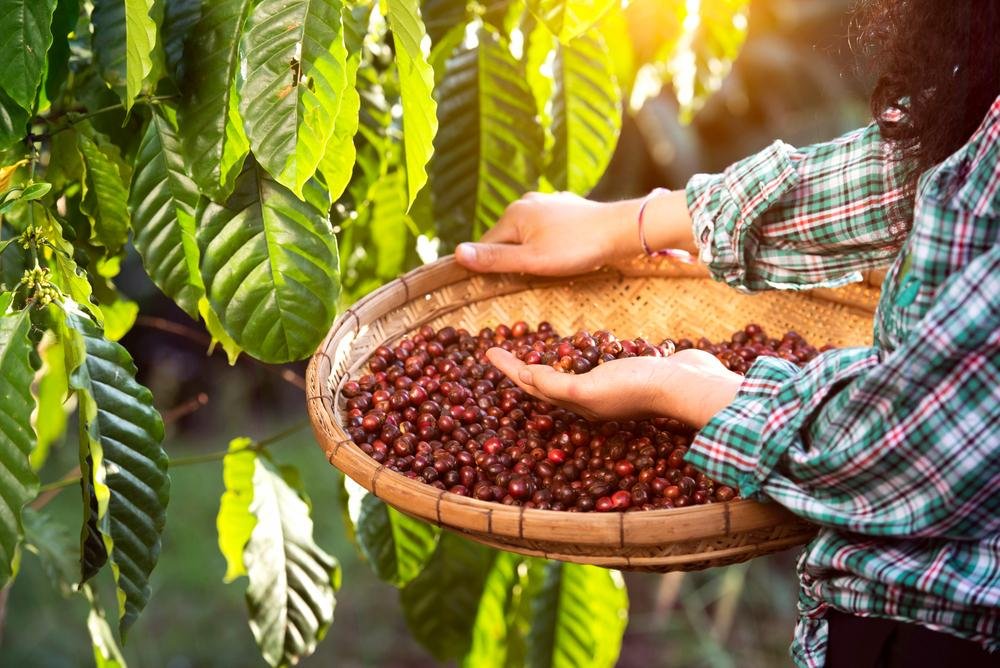Coffee is part of the routine of many people around the world. Regardless of the country and local culture, the beverage is among the most popular and is the second most consumed beverage in the world, after only water.
Coffee has always been very available in Brazil. From the early days when the country started to be one of the largest coffee producers and exporters in the world, to the present day when there are a variety of coffee options and preparation methods.
And for those who take the subject seriously, we decided to celebrate World Coffee Day with a guide that will explain the types of coffee beans. If you’re already consuming the beverage, understanding the coffee beans will help you choose the one that best suits your palate. Check out some of the available options:
Arabica coffee
Originating in Ethiopia, Arabica Coffee was one of the first coffees produced. It is now cultivated all over the world, but it got this name because Arabia is the country responsible for spreading this type of grain to other regions.
Arabica coffee has a very intense aroma and allows for different flavor and acid levels. Arabica production goes through delicate processes from harvest to the end of the bagging process. With all this complexity, this coffee has higher properties and therefore a higher value.
Purchase Option:

All-natural, gluten-free, organic
bourbon coffee
Bourbon coffee originated in Africa, in the Madagascar region, and got its name from the popularization of production on the Bourbon Island. It is usually produced in high areas, at altitudes above 800 meters, and on plantations, bourbon trees can reach 3 meters in height, although their fruit is slightly smaller than most grains.
It is a coffee with a very intense aroma and dialogue with sweetness, approaching the taste of hazelnut. Despite this, it has a medium body and low acidity, as the chocolate notes are very pronounced when tasting. With this, Bourbon coffee makes a nice combination with desserts, chocolates and cakes.
Purchase Option:
29% Closed
)

A special craft coffee. Handcrafted, it has a subtle acidic, defined flavor for those who love this variety. It offers striking taste notes, body and very present sweetness.
23.79 BRL
acaia coffee
Acaiá is 100% Arabica coffee practically discovered in Brazil, a place that grows this type of grain like no other country in the world. Even the name comes from the Tupi-Guarani dialect.
One of the main physical characteristics of Acaiá is the very large seeded fruit that adapts well to Brazilian soils and climate.
Acaiá is a smooth coffee with fruit notes. However, for some people who prefer to feel the natural sweet taste with moderate acidity, the addition of sugar or sweetener becomes unnecessary.
Purchase Option:
10% Closed
)

Handcrafted with the coffee tree itself, certified by BSCA member, rainforest alliance utz, certifies mines.
17.90 BRL
Catuai coffee
Catuaí coffee is also a type of Arabica and has gained a reputation in Brazil as well. The grain was well studied and analyzed until its official launch in the 70s.
In the plantation, Catuaí has a very rapid growth, faster than the traditional one, as well as being easy to process and very resistant to pests. This makes planting easier and allows for easy hand harvesting.
Catuaí, whose name also comes from the Tupi-Guarani dialect, is split between red and yellow. Both are moderately acidic, light and smooth. The difference is that yellow is much less plump than red and offers caramelized touches while still being more delicate. Red has a more accentuated and striking flavor because it has been genetically manipulated.
Purchase Option:
)

Handcrafted with the cafe’s own wood, altitude: 1350 meters. Process: Honey Process.
geisha coffee
Originally from Geisha, Ethiopia, this coffee started to become popular around the world when it reached Panama, but its culture spread to other countries. Geisha has been one of the best coffees in international quality competitions and competitions in recent years.
Geisha, 100% Arabica coffee, grows at high altitudes and finds its best form under tropical rains. This is a very complex grain, but it makes up for it in finesse and flavor. Sweet touches and floral aromas are some of its most striking features. It is possible to feel the notes of tropical fruits, wild fruits, jasmine and bergamot.
With this extraordinary complexity, Geisha are exported to only a few countries and at a relatively high cost compared to others. It is also sold in small lots and is gradually spreading all over the world.
Purchase Option:
)

Handcrafted with the cafe’s own wood, altitude: 1350 meters. Process: Honey Process.
Cafe Caturra
Caturra coffee has smaller beans than others. It is a coffee with a very high production capacity in the first crops, but later declines due to the low capacity of its roots to absorb nutrients from the soil. As a result, although its feet are quite high and it must be planted at an altitude of 800m, it is somewhat more susceptible to pests.
Caturra is further divided into red and yellow. Red acquires this color feature with some environmental factors such as temperature, soil and altitude. However, it requires a lot of care and a nutrient-rich soil.
Yellow Caturra is more productive and produces many sacks per harvest. Both are especially recommended when making specialty coffees, due to the high level of sucrose responsible for sweetness. In the cup, Caturra is a coffee with a strong aroma and a taste reminiscent of chocolate and hazelnut.
Purchase Option:
)

It comes from family-produced nanolots with 100% premium Arabica beans. It has an intense citrus aroma, an incredible taste with hints of pineapple, a smooth, refreshing and lasting taste.
conilon coffee
Conilon coffee has some minor sensory aspects compared to the Arabica variety. The most important of these is the higher concentration of caffeine, which gives the drink a more bitter taste. The origin of Conilon coffee is Congo, and its fields have great resistance to pests, as it has a more robust style in all processing.
Currently Conilon is a grain that is abundant in famous blends blended with Arabica. In the cup, the bitterness is very pronounced for those accustomed to the traditional coffee, which is more popular in Brazil. Its scent is also different, as it offers something much more robust to the grain, without much change in scent.
Purchase Option:
)

Fair Trade certified, pesticide-free 100% Conilon coffee through Cooperativa Cafesul, medium dark roast.
Robusta Coffee
Robusta coffee, whose variation is Conilon, also has a bitter and full flavor. As a result, it is also found in blends with Arabica Coffee. The aroma is also more intense and heavier. These features are mainly due to geographical conditions such as climate and soil.
The popularity of consumption of this type of coffee, which has a more intense and more robust flavor, is not as great as Arabica coffee, which has more variation in taste, aroma and body.
Kona coffee
Café Kona is considered by many to be one of the tastiest in the world and, as a result, one of the most expensive.
The origin of Kona coffee is Hawaii, a region known for its geography that dialogues with volcanic soils. This gives the grain very special properties, giving it all the notoriety it has had for several years.
Its main features are its fuller flavor and velvety fruit flavor. Kona has a unique and rare flavor as the region, soil and climate it has been exposed to since its cultivation is at the same time.
Source: Tec Mundo










